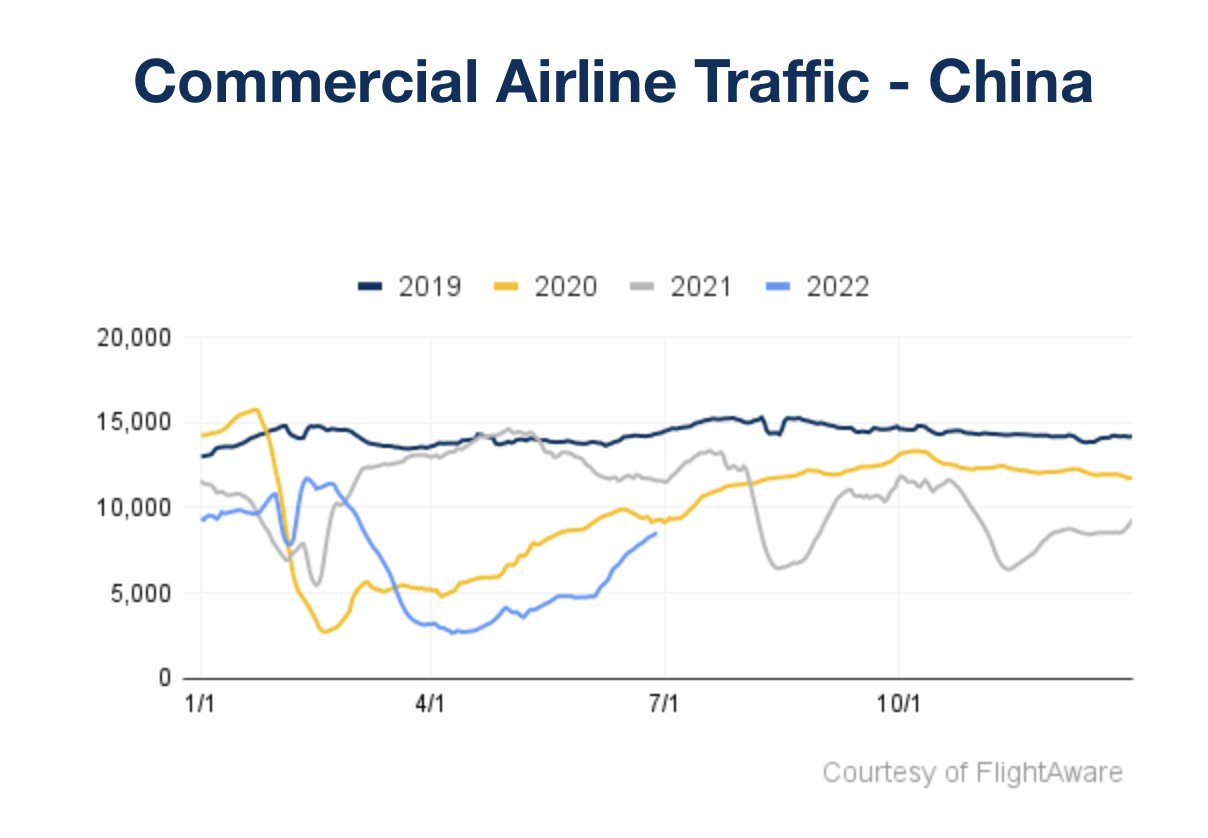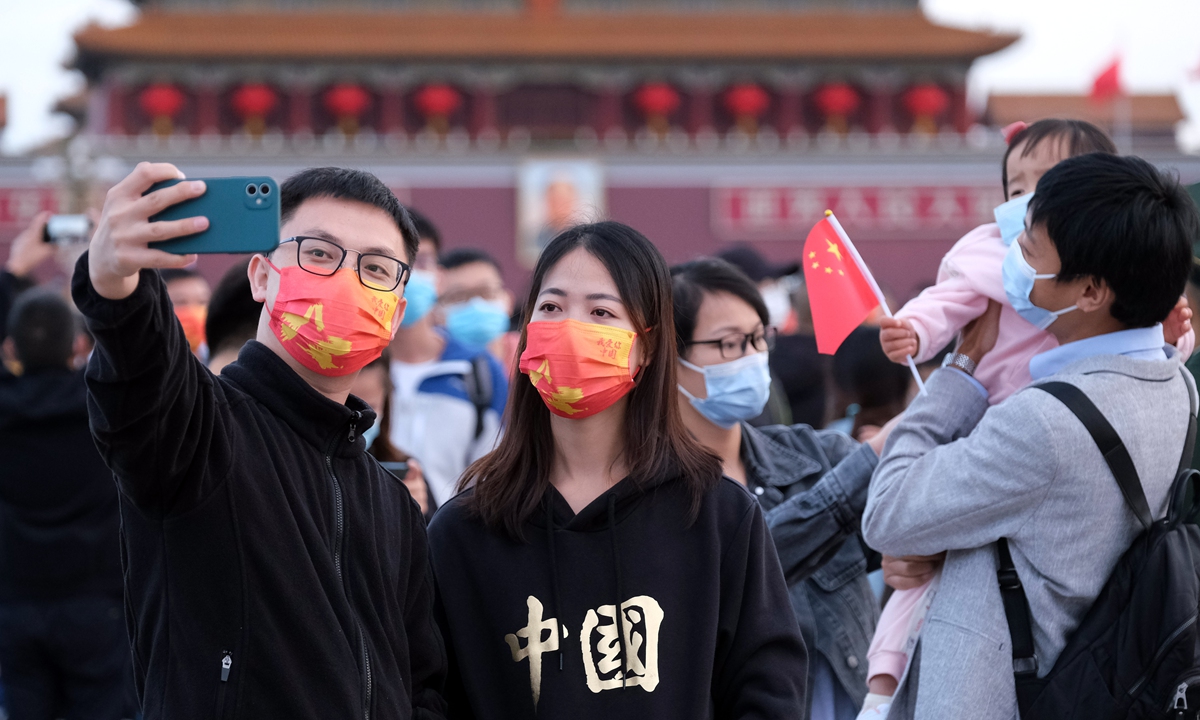A massive article, see link for all of it...
10 years on, with growing confidence, China’s Gen-Z finds the West no longer attractive: GT surveys
Published: Jul 08, 2022 01:01 AM
Photo: VCG
Editor's Note:
When it comes to rapid domestic development and global ascendance, there is hardly any parallel to what China has achieved over the past decade. In a poll conducted by the Global Times Research Center in 2012, over half of foreign respondents viewed China as a "world power." But Chinese people were humbler, with only 34.9 percent of Chinese respondents to a 2014 survey seeing their country as a world power, despite China's rise to become the world's second-largest economy.
However, a decade later, with growing interactions with the world and remarkable domestic development, Chinese people, especially the Generation-Z, have become increasingly confident. Most Chinese youths no longer blindly admire the West and have started to see the outside world, especially the West, on an equal footing. Beyond the growing confidence of the country as a major power, Chinese people are now starting to think about how China should reshape the world.
Through in-depth analysis on the survey results conducted by the Global Times Research Center over the past 10 years, the Global Times aims to explore why Chinese people are becoming more and more confident. This is the first of the two-part analysis, which shows that behind these changes is a great boost of China's national strength and image.
Being humble is quite a traditional characteristic of the Chinese people ingrained in Chinese culture, and the surveys done by the Global Times Research Center in past 10 years just found that when most foreigners considered China to be a world power, most Chinese still couldn't believe their country was powerful enough to make such a claim. Surveys and interviews with experts and voluntary participants revealed that Chinese people held stricter standards for their own country, and they didn't want to admit to success lest they appeared conceited or arrogant.
10 years ago, when talking about the compliments from the West on China's development, many Chinese appeared to be cautious. In Chinese culture, there is a concept called
"Pengsha" which means to make someone conceited by flattering, so that he/she will stop working hard or will make mistakes, which is a classic way to cheat rivals in competition. So when the Western countries, especially the US, are talking about China's rise and capability and say that China is a "free-rider" of the Western-dominated world order and that it should be a "responsible stakeholder," many Chinese see this as a case of
"Pengsha," said analysts.
The questionnaire in 2012 had covered eight countries including 7,045 interviewees aged 18-64 from the US, the UK, Germany, Japan, Russia, India, South Africa and Brazil, and 19 percent of them believed "China has already become a super power in terms of comprehensive national strength," and 34 percent of them believed China was a "world power."
At the end of 2011, the Global Times Research Center surveyed people from major cities across China, and among them there were only 14.1 percent interviewees who considered China a world power while 51.3 percent of them said "China is not yet a world power" and 33.4 percent of them said "China is not a world power at all."
Zhang Yiwu, a professor at Peking University, said "this is normal. Because foreigners could see China's growing global influence more clearly and directly than Chinese people who live in China," and the most crucial reason is that China still got many problems and difficulties that need to be solved amid the process of its fast development, so Chinese people have higher expectations and stricter demands toward their own country.
Jin Canrong, associate dean of the School of International Studies at the Renmin University of China, said that those Westerners who criticized China for not having freedom of speech have no idea what's been going on among Chinese social media in the past decade.
"Quite a number of Chinese netizens hold their country to very high standards, wishing for China's welfare system and per capita income to surpass those of Switzerland and Denmark, for the industrial capability and product quality to surpass those of Germany and Japan, for the military strength to surpass that of the US and Russia; and for the ecological environment protection level to surpass that of New Zealand…and as long as China can't deliver these, they would freely complain online all the time and downplay the concrete achievements of the country," Jin said.
"They are impatient for their wishes to be satisfied. To be honest, such demands are not very realistic, and it can't help the Chinese people to better understand China's international status," he noted.
However, such high demands from the netizens have to some extent encouraged the Communist Party of China and the Chinese government to endeavor toward a fast-paced and high-quality development to satisfy the Chinese people, and this is the reason why China was able to reach so many achievements, especially in past decade, said analysts.
This has been reflected in the Global Times surveys too. In 2013, a year after the 18th National Congress of the CPC, the survey showed that more and more Chinese people have been more confident and optimistic than the previous years.
The 2013 survey covered 1,539 samples from seven major cities across the country. It shows that 40.4 percent of the interviewees believed that the economy would "keep growing year-on-year in next five years," while in 2012, 32.5 percent had the same opinion. In 2013, less people believed China would experience an economic downturn or that the economy would fluctuate up and down in following five years.
The successful governance of the new leadership, after the 18th National Congress of the CPC, boosted confidence in the economy, and the effective reforms in politics, the military and people's living standards were also reflected in the survey by the Global Times. In 2013, 74.3 percent of the interviewees said the living standard had improved, an increase of 1.3 percent over 2012. And 68.7 percent of them believed the Chinese military was able to defend the country from invasion by other major world powers in 2013, a 0.7 percent year-on-year increase.
In 2013, 72 percent of the interviewees believed that "China could continue marching on the path of socialism with the Chinese characteristics," which saw a 4.3 percent increase over 2012.
Two years later, the trend was getting increasingly clear. According to a 2015 survey focusing on Chinese people's expectations toward their country's development which covered 2,203 samples from 16 Chinese cities across countries, 86.1 percent of participants declared that "China is marching on the right path for development" while 73.7 percent of them agreed with the statement: "Although Chinese economic growth is slowing down, it's reasonable to keep the growth rate at around 7 percent."
Additionally 84.3 percent of them believed that in the following 5 years, China would make progress in cracking down violent terrorist activities that threaten the country's stability, and would improve public order and development. The remarkable results achieved in China's Xinjiang in terms of safety, with no terrorist attacks being perpetrated since 2017, prove, according to analysts, that the Chinese government has delivered what its people had expected.
The survey also showed that 86.2 percent of the interviewees believed that China would achieve significant or major progress in the fields of science and technology in the following 5 years, and in recent years, due to China's key achievement in 5G technology and other cutting edge sci-tech areas, the country has remarkably changed and improved the way of life for its own people, which to a certain extent prompted the US to launch a crackdown to contain China's development using unfair measures in multiple fields.




